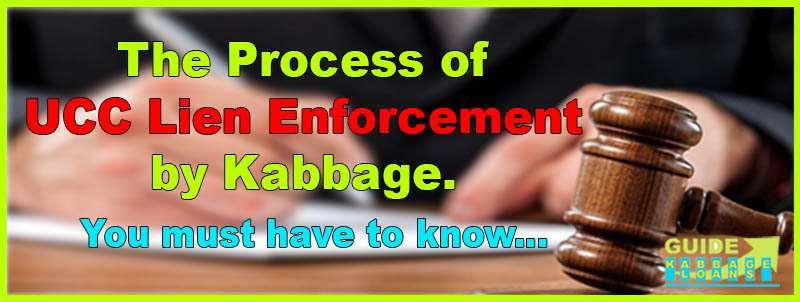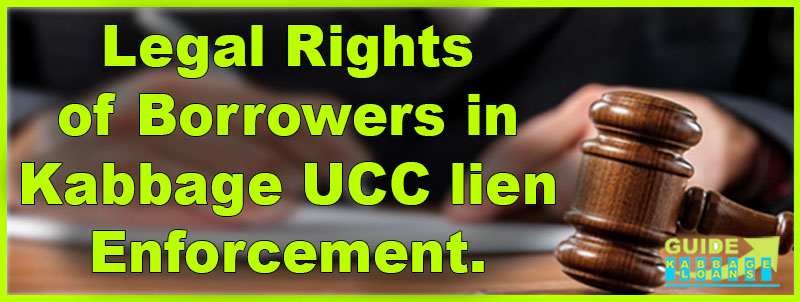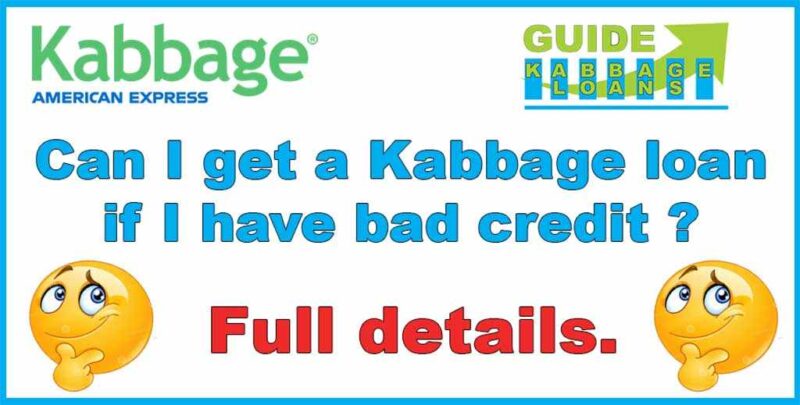As a small business owner, securing financing is essential for growth. One option is to take out a loan with American Express, which recently acquired Kabbage, a company known for offering small business loans and financial management tools. However, if you default on the loan, Kabbage UCC Lien Enforcement by American Express may occur, leading to a lien on your business assets.
In this article, we will explain UCC liens, how American Express uses them in lending, and what happens during the Kabbage UCC Lien Enforcement process. We will also discuss avoiding lien enforcement, negotiating with American Express, and understanding your legal rights as a borrower.
What are UCC liens and their role in business financing?
A UCC lien is a legal claim that a lender can make against a borrower’s assets as collateral for a loan. UCC stands for “Uniform Commercial Code,” which is a set of laws that govern commercial transactions in the United States.
UCC liens can be placed on various types of business assets, such as accounts receivable, inventory, equipment, and real estate. The purpose of UCC liens is to secure a lender’s interest in the assets in case the borrower defaults on the loan.
(( Reference: Some of this information was obtained from the official American Express website. For more details, please visit their site. ))
Can you enforce a UCC lien without obtaining a judgment?
If you want to enforce a UCC lien without getting a judgment first, it’s usually not possible. In most cases, you need a court judgment to go after a debtor’s assets. The recent Ohio case, Wulco v. The O’Gara Group & Monroe Capital Partners Fund, shows how tricky this can be.
In this case, both a judgment creditor and a UCC-secured creditor were trying to claim money from a debtor’s bank account. The court had to decide who had the right to the funds and whether the court clerk handling the garnishment could be considered a “transferee” under the UCC rules, which could affect the security interest.
So, in simple terms, to enforce a UCC lien effectively, getting a court judgment first is generally necessary, especially if you’re competing with other creditors.
(( Reference: This information was obtained from a highly reputable source, the New York Law Journal. For more details, you can visit their website. ))
What is Kabbage and how does it use UCC liens in lending?
Kabbage, now part of American Express, is a financial technology company that provides small business loans. The company offers loans from $500 to $250,000, with repayment terms of 6, 12, or 18 months. To secure its loans, Kabbage uses UCC liens, placing a legal claim on a borrower’s business assets. This means if you default on a Kabbage loan, American Express can enforce the UCC lien, seizing your business assets to repay the outstanding loan balance.
The process of UCC lien enforcement by Kabbage.

The process of Kabbage UCC Lien Enforcement by American Express involves several steps if you default on a loan:
- Notice of Default: You will receive a notice from American Express, informing you of missed payments and the default status of your loan.
- UCC-1 Filing: American Express will file a UCC-1 financing statement in the state where your business is located, establishing a legal claim on your business assets.
- Notice of Intent to Sell: You may receive a notice that your business assets will be sold to cover the loan balance.
- Asset Sale: American Express may proceed with selling your business assets through a public auction or private sale to recover the outstanding loan amount.
Can Kabbage enforce a UCC lien without my consent?
Yes, Kabbage can enforce a UCC lien without your consent if you default on the loan. When you entered into the loan agreement with Kabbage, you accepted the terms that included using UCC liens as collateral. In case of a default, Kabbage, as part of American Express, has the right to enforce the UCC lien and potentially seize your business assets to recover the loan amount.
How to avoid UCC lien enforcement by Kabbage?
To avoid UCC lien enforcement by Kabbage, it’s crucial to make your loan payments on time. If you encounter financial difficulties, reach out to Kabbage promptly. Since Kabbage is now part of American Express, they may offer solutions such as modifying loan terms or setting up a more manageable repayment plan.
Additionally, if UCC liens are a concern, consider exploring other financing options that do not involve placing a legal claim on your business assets.
Negotiating with Kabbage to prevent UCC lien enforcement.
If you receive a notice of default or intent to sell from Kabbage. you may want to negotiate with the company to prevent UCC lien enforcement. You can discuss repayment options or loan modifications with Kabbage and try to reach a mutually beneficial agreement.
Keep in mind that Kabbage may be willing to negotiate if it believes that it will recover more of the outstanding loan balance through negotiation than through the enforcement of a UCC lien.
Legal rights of borrowers in Kabbage UCC lien enforcement cases.

In cases involving Kabbage’s enforcement of a UCC lien, borrowers have important legal rights and avenues for defense. Here are three essential steps to protect your interests:
- Respond to the Lawsuit Promptly: If you receive a lawsuit from Kabbage, respond without delay. Failing to respond could result in a default judgment against you. Review the lawsuit documents carefully and file your response with the court, stating your intention to contest the case.
- Challenge Kabbage’s Legal Standing: You can challenge Kabbage’s right to sue by examining the loan agreement, promissory note, and other relevant documents for any errors or discrepancies. As Kabbage is now part of American Express, ensure that the legal documentation reflects the correct ownership and authority. Any issues with Kabbage’s claim to the debt could influence the outcome of the case.
- File Your Answer and Notify Relevant Parties: After you respond to the lawsuit, file a formal answer with the court detailing your defenses and any counterclaims. Ensure that a copy of your response is sent to Kabbage’s legal representatives. As American Express is now involved, you may need to address communications with their legal team as well.
Conclusion.
Understanding the Kabbage UCC lien enforcement process is crucial for small business owners seeking financing through American Express and Kabbage. While UCC liens can protect lenders, borrowers have options to prevent or manage enforcement actions. Staying informed about your rights and maintaining open communication with lenders can help you navigate these challenges and secure a fair resolution.
Faq’s
What is Kabbage?
Kabbage is an online financial technology company that offers funding solutions to small businesses. Acquired by American Express, Kabbage provides flexible business loans and lines of credit, leveraging technology to simplify the lending process and support the financial needs of entrepreneurs.
What happens if I default on a Kabbage loan?
If you default on a Kabbage loan, the company can enforce its UCC lien and seize your business assets to repay the outstanding loan balance.
Can I negotiate with Kabbage to avoid UCC lien enforcement?
Yes, you can try to negotiate with Kabbage to avoid UCC lien enforcement by discussing repayment options or loan modifications.
What types of business assets can be subject to Kabbage UCC lien enforcement?
Kabbage UCC liens can be enforced on a range of business assets, such as accounts receivable, inventory, equipment, and real estate.
Thanks for your visit.
(Kabbage UCC Lien Enforcement: Complete Guide)
Disclaimer: This article provides general information about Kabbage UCC lien enforcement and related legal processes. It is not legal advice and should not be used as a substitute for professional consultation. For specific legal guidance, please consult a qualified attorney. We have no affiliation with Kabbage, Inc. or American Express. We are a separate financial consulting company.





